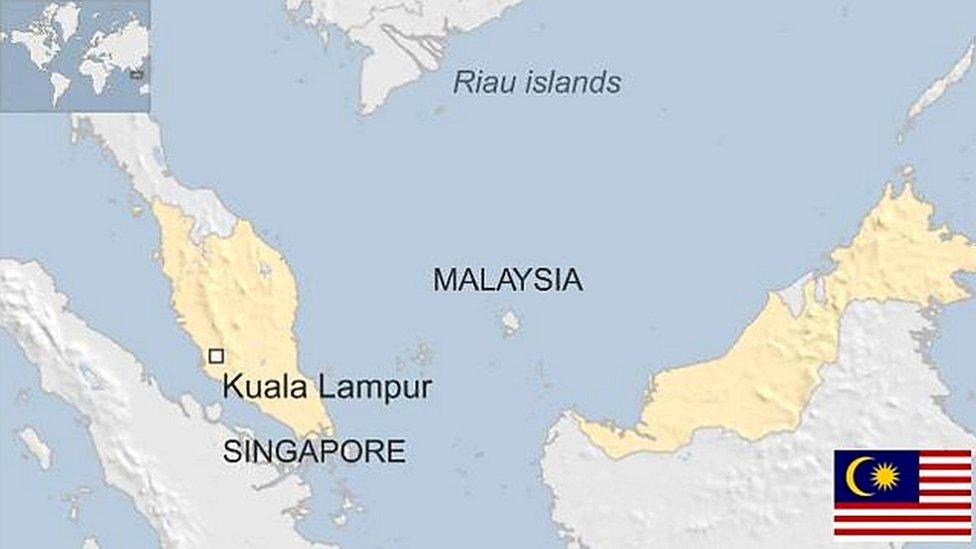Malaysian warden investigated for murder of schoolboy
- Published
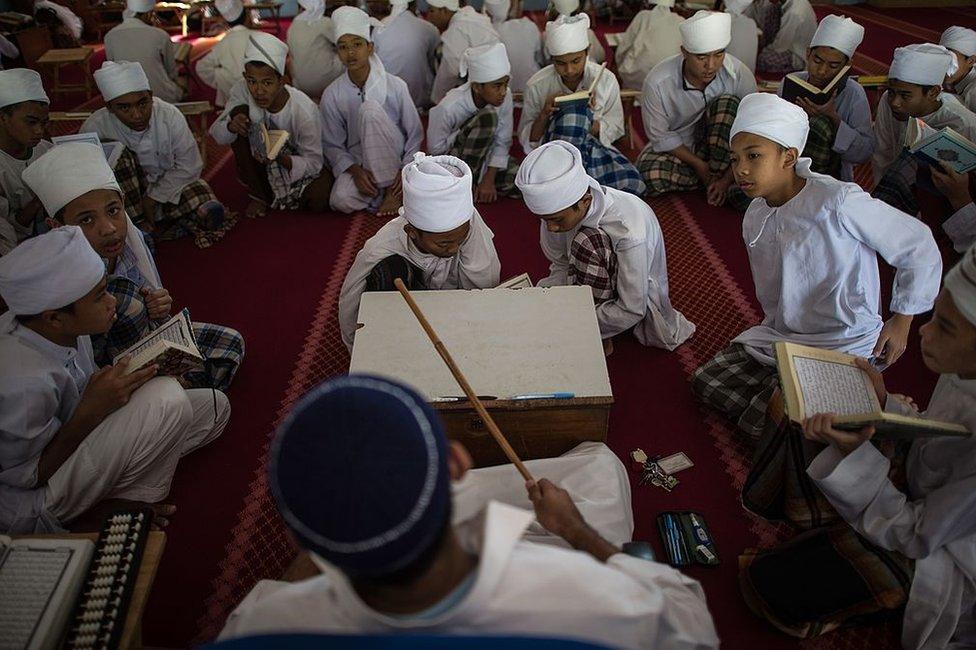
The schoolboy attended a private Islamic school (not pictured), one of many in Malaysia
Malaysian police are investigating a religious school's assistant warden for murder, after a schoolboy died in a case that has sparked outrage.
The accused had allegedly beaten the boy, 11-year-old Mohamed Thaqif Amin Mohd Gaddafi, with a water hose.
The boy later contracted serious infections and doctors amputated his legs. He died on Wednesday from complications.
The incident has prompted calls for greater scrutiny of religious schools.
What happened to the boy?
In late January the boy enrolled in a privately-run Islamic school in the town of Kota Tinggi, in Johor state.
Police say that he was among a group of 15 boys beaten by the assistant warden on 24 March for making too much noise in the school's assembly building.

His mother pulled him out of the school when she visited several days later and found him looking weak, according to reports.
He was taken to the hospital three weeks later when his legs swelled up, apparently from blood clots. Doctors found he had contracted serious infections and had to amputate his legs.
They were about to amputate his right arm as well on Wednesday when the boy died.
Excerpts from the boy's diary, published in Malaysian media, appear to describe systematic abuse at the school, and that if one student made an error the whole group would be punished.
How have the authorities responded?
Police initially arrested the assistant warden - who has not been named - for child abuse, but said they were re-classifying the case as murder after Mohamed Thaqif died.
They also disclosed that the accused was a former convict previously jailed for theft.
The school has declined to comment, citing the ongoing police investigation. A separate investigation by Johor's religious authority has cleared the school of any wrongdoing.
But the head of the country's umbrella group for religious schools said CCTV footage showed the student was "only hit on one of the legs", and there was "probably a high chance that other factors" led to the boy's condition.
"There is no need to point fingers on anybody just yet... It is not right to label all religious schools to be abusive towards their students," Mohd Zahid Mahmood was quoted as saying., external
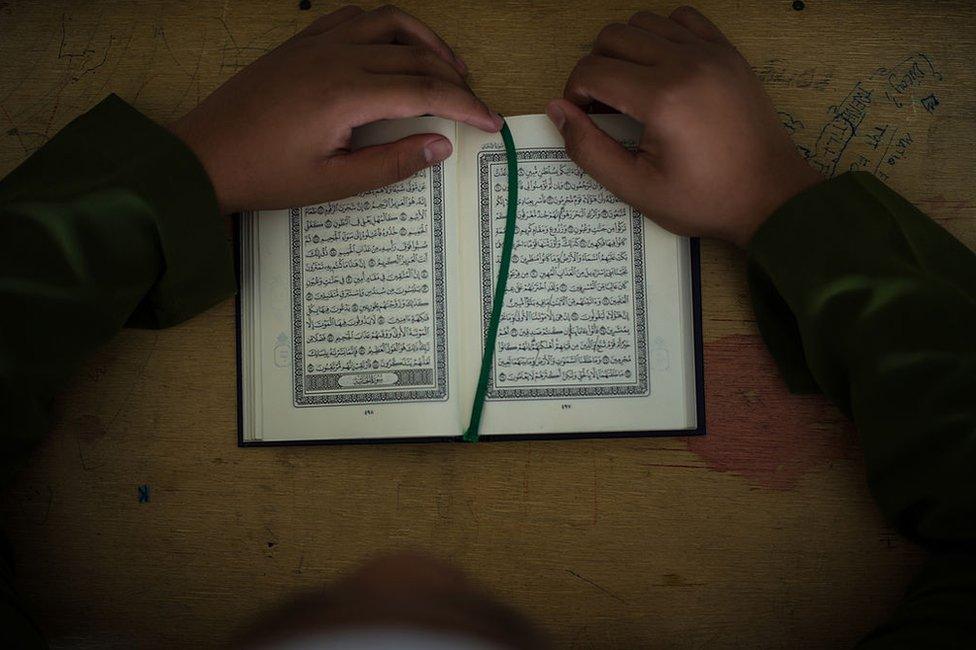
The boy had attended a school where students learned how to memorise the Koran
A deputy minister told reporters, external on Wednesday night that it was "unfair for us to prematurely pin the blame on anybody" before the investigation was complete.
Prime Minister Najib Razak meanwhile has called for a speedy investigation.
Islamic authorities have said they are reassessing staff hiring guidelines for religious schools.
How have Malaysians reacted?
The case has caused an outcry, with Malaysians asking why the school hired a former convict to take care of children, and how the abuse could have gone undetected.
But at the heart of the issue is the regulation of Islamic schools - many say there is insufficient oversight.
Hundreds have mushroomed over the decades, and this week Mr Najib gave 80 million Malaysian ringgit, external (£14.3m, $18.4m) to registered schools.
But many unregistered schools have popped up, mostly in rural communities, and authorities have struggled to keep track and regulate them.
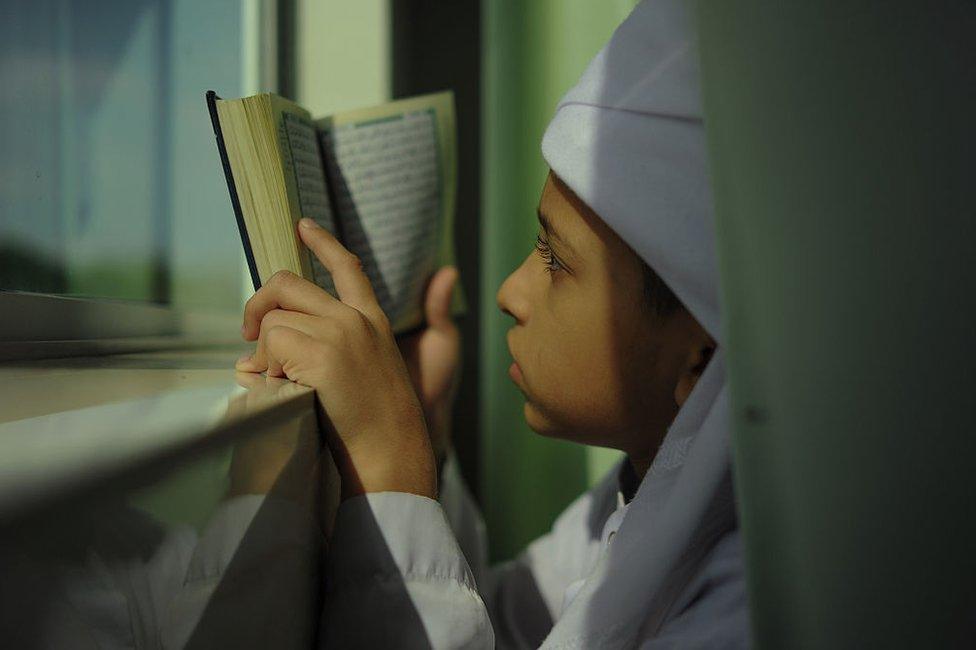
Hundreds of Islamic schools have mushroomed over the decades
The issue is sensitive in Muslim-majority Malaysia, leading to what one writer has called the "culture of silence, keeping face and sweeping things under the rug".
Writing in The Malay Mail newspaper,, external Aziff Azuddin noted past cases of alleged abuse in religious schools and the lack of transparency in school authorities' responses.
With some interpreting criticism of religious schools as "an attack on religion", "is it any wonder then that we can never really address the true issue: abuse taking place in an educational institution?" he asked.
- Published26 April 2017

- Published22 August 2016

- Published12 April 2017

- Published29 March 2015
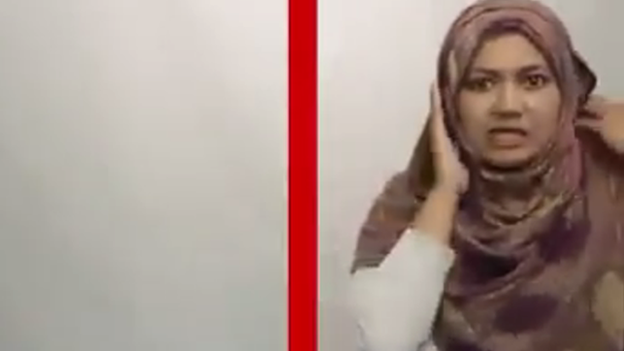
- Published3 May 2015

- Published22 April 2016

- Published19 May 2023
